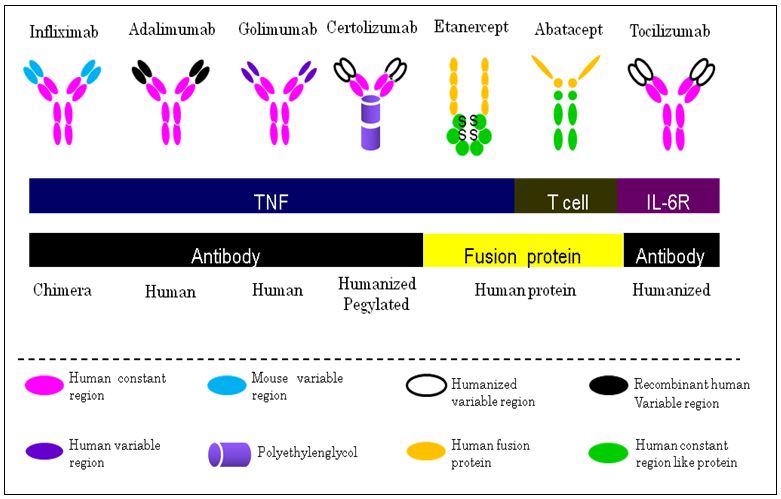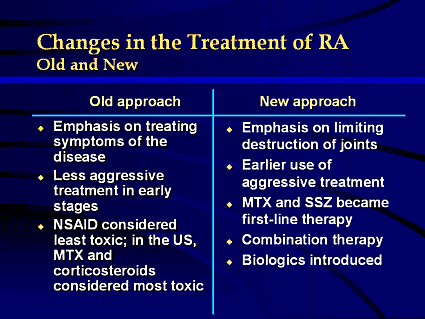Stem Cells As Used In Treating Rheumatoid Arthritis
Despite Rheumatoid Arthritis being a common disease many people still do not know much about this disease and therefore it is necessary to begin by shedding light on what rheumatoid arthritis is all about. Rheumatoid arthritis is an autoimmune disease in which the patient’s immune system generates cellular and antibody responses to various components of the joint such as type I collagen. This immune response causes myriads of problems. First it causes joint destruction but it may also lead to other problems as pulmonary fibrosis, renal damage and even heart damage.
Rheumatoid arthritis is known for its debilitating effects especially since it destroys joints. Currently medical researchers are working on stem cell therapy; the medical fraternity has shown optimism that the stem cells can be used to help patients suffering from rheumatoid arthritis. Stem cells are unprogrammed cells in the human body that have the ability to shift shape; they can be turned into different cells and used to replace the damaged cells causing problems. It is the ability of the stem cells to differentiate into other types of cells that have gave them the medicinal qualities that doctors are taking advantage of. Today, stem cells are at the center of a new field of science called regenerative medicine. Because stem cells can become bone, muscle, cartilage and other specialized types of cells, they have the potential to treat many diseases, including Parkinson’s, Alzheimer’s, Diabetes, arthritis, cancer among others.
The stem cell Therapy
Stem cell therapy is a strategy that is used in treating disease by introducing adult stem cells into damaged tissues in order to treat the disease, correct the damage and restore the functions of the tissues. there is optimism in medical research fields that the stem cells have the potential to change the face of human disease and alleviate suffering. The ability of stem cells to self-renew and give rise to subsequent generations with variable degrees of differentiation capacities, offers significant potential for generation of tissues that can potentially replace diseases and damaged areas in the body, with minimal risk of rejection and side effects.

Stem cells for Rheumatoid Arthritis
Rheumatoid arthritis is not easily treated. The methods that have been used to treat, some of which are still being used are not very effective and pose a great threat in the long term. They may offer momentary relief but these approaches possess long-term adverse effects due to non-specific inhibition of immune responses. In addition, the methods that have been used do not attempt to heal the damage that has already taken place in the joints and other tissues. these methods that have been in use may include immune suppressive agents such as steroids, methothrexate, cyclosporine, gold, and infliximab. It is expected that with advancement in treatment strategies of Rheumatoid Arthritis and use of target therapies, the patients will have a better way to acquire treatment. Stem cell therapy is one of these advancements.
Currently, there are many institutions that are studying the effects of adult stem cell therapy on patients diagnosed with rheumatoid arthritis. Stem cell therapy is viewed as a clever way of treating rheumatoid arthritis since the disease causes inflammations and tissue damage, the stem cells can be used as target therapy to replace cells damaged in the inflamed areas of the body by inducing an anti-inflammatory effect. The ability of the stem cells to produce regular T cells is also being studied; T cells are a type of immune cell whose responsibility is to regulate the immune system while maintaining tolerance to self-antigens. By differentiating into these types of healthy cells there is hope that adult mesenchymal cells will be able to address the complications caused by Rheumatoid Arthritis.
In animals, stem cells therapy has shown considerable achievement in healing different forms of arthritis. A company known as Vet-Stem routinely utilizes stem cells in horses with various joint deformities to accelerate healing. There is also another advantage that stem cell therapy brings, the stem cell therapy not only helps in healing of damaged tissues but also modulates the immune system so as to shut off pathological responses while preserving ability to fight off diseases. Stem cells and specifically, mesenchymal stem cells home to inflamed tissue and start producing anti-inflammatory agents. These mediators act locally and do not suppress the immune response of the patient’s whole body.
Various ways of administering Stem cells
 As known rheumatoid arthritis affect specific parts of the body, especially the joints where they damage the every tissue. With the stem cell therapy these damaged tissues can be targeted locally by introducing large amounts of stem cells into the areas where they are mostly needed. Here are some of the ways through which the stem cells can be administered into the affected areas of the body.
As known rheumatoid arthritis affect specific parts of the body, especially the joints where they damage the every tissue. With the stem cell therapy these damaged tissues can be targeted locally by introducing large amounts of stem cells into the areas where they are mostly needed. Here are some of the ways through which the stem cells can be administered into the affected areas of the body.
- Full body IV – directed into the vein
- Intra Nasal – administration to access a highly vascular pathway of the nose to encourage more stem cells to travel past the blood brain barrier.
- Direct site injections – injected directly into the site that needs repair, i.e., muscles and tendons
Where can we harvest the stem cells
For treatment of rheumatoid arthritis, a specific type of stem cells is used. This type of stem cell is known as allogeneic mesenchymal stem cells to treat rheumatoid arthritis. The allogeneic mesenchymal stem cells can be obtained from human umbilical cords donated after normal, healthy births. Finally, you need help to live a life that is free from chronic diseases like rheumatoid arthritis; you will also need help when you are sick of the same. Dr. Dalal Akoury (MD), founder of the AWAREmed Health and Wellness Resource Center Located at Myrtle Beach, North Caroline has unequalled experienced in handling these diseases, call on her for help.
Stem Cells As Used In Treating Rheumatoid Arthritis







0 comments
Write a comment